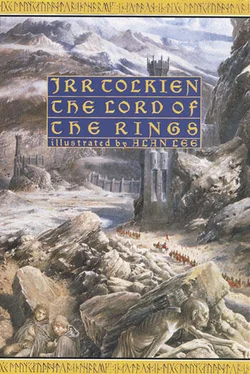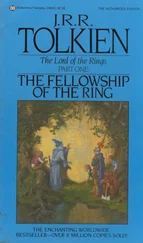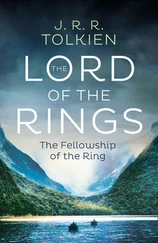It will be noticed that Hobbits such as Frodo, and other persons such as Gandalf and Aragorn, do not always use the same style. This is intentional. The more learned and able among the Hobbits had some knowledge of ‘book-language’, as it was termed in the Shire; and they were quick to note and adopt the style of those whom they met. It was in any case natural for much-travelled folk to speak more or less after the manner of those among whom they found themselves, especially in the case of men who, like Aragorn, were often at pains to conceal their origin and their business. Yet in those days all the enemies of the Enemy revered what was ancient, in language no less than in other matters, and they took pleasure in it according to their knowledge. The Eldar, being above all skilled in words, had the command of many styles, though they spoke most naturally in a manner nearest to their own speech, one even more antique than that of Gondor. The Dwarves, too, spoke with skill, readily adapting themselves to their company, though their utterance seemed to some rather harsh and guttural. But Orcs and Trolls spoke as they would, without love of words or things; and their language was actually more degraded and filthy than I have shown it. I do not suppose that any will wish for a closer rendering, though models are easy to find. Much the same sort of talk can still be heard among the orc-minded; dreary and repetitive with hatred and contempt, too long removed from good to retain even verbal vigour, save in the ears of those to whom only the squalid sounds strong.
Translation of this kind is, of course, usual because inevitable in any narrative dealing with the past. It seldom proceeds any further. But I have gone beyond it. I have also translated all Westron names according to their senses. When English names or titles appear in this book it is an indication that names in the Common Speech were current at the time, beside, or instead of, those in alien (usually Elvish) languages.
The Westron names were as a rule translations of older names: as Rivendell, Hoarwell, Silverlode, Langstrand, The Enemy, the Dark Tower. Some differed in meaning: as Mount Doom for Orodruin ‘burning mountain’, or Mirkwood for Taur e-Ndaedelos ‘forest of the great fear’. A few were alterations of Elvish names: as Lune and Brandywine derived from Lhún and Baranduin.
This procedure perhaps needs some defence. It seemed to me that to present all the names in their original forms would obscure an essential feature of the times as perceived by the Hobbits (whose point of view I was mainly concerned to preserve): the contrast between a wide-spread language, to them as ordinary and habitual as English is to us, and the living remains of far older and more reverend tongues. All names if merely transcribed would seem to modern readers equally remote: for instance, if the Elvish name Imladris and the Westron translation Karningul had both been left unchanged. But to refer to Rivendell as Imladris was as if one now was to speak of Winchester as Camelot, except that the identity was certain, while in Rivendell there still dwelt a lord of renown far older than Arthur would be, were he still king at Winchester today.
The name of the Shire (Sûza) and all other places of the Hobbits have thus been Englished. This was seldom difficult, since such names were commonly made up of elements similar to those used in our simpler English place-names; either words still current like hill or field; or a little worn down like ton beside town. But some were derived, as already noted, from old hobbit-words no longer in use, and these have been represented by similar English things, such as wich, or bottle ‘dwelling’, or michel ‘great’.
In the case of persons, however, Hobbit-names in the Shire and in Bree were for those days peculiar, notably in the habit that had grown up, some centuries before this time, of having inherited names for families. Most of these surnames had obvious meanings (in the current language being derived from jesting nicknames, or from place-names, or — especially in Bree — from the names of plants and trees). Translation of these presented little difficulty; but there remained one or two older names of forgotten meaning, and these I have been content to anglicize in spelling: as Took for Tûk, or Boffin for Bophûn.
I have treated Hobbit first-names, as far as possible, in the same way. To their maid-children Hobbits commonly gave the names of flowers or jewels. To their man-children they usually gave names that had no meaning at all in their daily language; and some of their women’s names were similar. Of this kind are Bilbo, Bungo, Polo, Lotho, Tanta, Nina, and so on. There are many inevitable but accidental resemblances to names we now have or know: for instance Otho, Odo, Drogo, Dora, Cora, and the like. These names I have retained, though I have usually anglicized them by altering their endings, since in Hobbit-names a was a masculine ending, and o and e were feminine.
In some old families, especially those of Fallohide origin such as the Tooks and the Bolgers, it was, however, the custom to give high-sounding first-names. Since most of these seem to have been drawn from legends of the past, of Men as well as of Hobbits, and many while now meaningless to Hobbits closely resembled the names of Men in the Vale of Anduin, or in Dale, or in the Mark, I have turned them into those old names, largely of Frankish and Gothic origin, that are still used by us or are met in our histories. I have thus at any rate preserved the often comic contrast between the first-names and surnames, of which the Hobbits themselves were well aware. Names of classical origin have rarely been used; for the nearest equivalents to Latin and Greek in Shire-lore were the Elvish tongues, and these the Hobbits seldom used in nomenclature. Few of them at any time knew the ‘languages of the kings’, as they called them.
The names of the Bucklanders were different from those of the rest of the Shire. The folk of the Marish and their offshoot across the Brandywine were in many ways peculiar, as has been told. It was from the former language of the southern Stoors, no doubt, that they inherited many of their very odd names. These I have usually left unaltered, for if queer now, they were queer in their own day. They had a style that we should perhaps feel vaguely to be ‘Celtic’.
Since the survival of traces of the older language of the Stoors and the Bree-men resembled the survival of Celtic elements in England, I have sometimes imitated the latter in my translation. Thus Bree, Combe (Coomb), Archet, and Chetwood are modelled on relics of British nomenclature, chosen according to sense: bree ‘hill’ chet ‘wood’. But only one personal name has been altered in this way. Meriadoc was chosen to fit the fact that this character’s shortened name, Kali, meant in the Westron ‘jolly, gay’, though it was actually an abbreviation of the now unmeaning Buckland name Kalimac.
I have not used names of Hebraic or similar origin in my transpositions. Nothing in Hobbit-names corresponds to this element in our names. Short names such as Sam, Tom, Tim, Mat were common as abbreviations of actual Hobbit-names, such as Tomba, Tolma, Matta, and the like. But Sam and his father Ham were really called Ban and Ran. These were shortenings of Banazîr and Ranugad, originally nicknames, meaning ‘halfwise, simple’ and ‘stay-at-home’; but being words that had fallen out of colloquial use they remained as traditional names in certain families. I have therefore tried to preserve these features by using Samwise and Hamfast, modernizations of ancient English samwís and hámfæst which corresponded closely in meaning.
Читать дальше
Конец ознакомительного отрывка
Купить книгу












